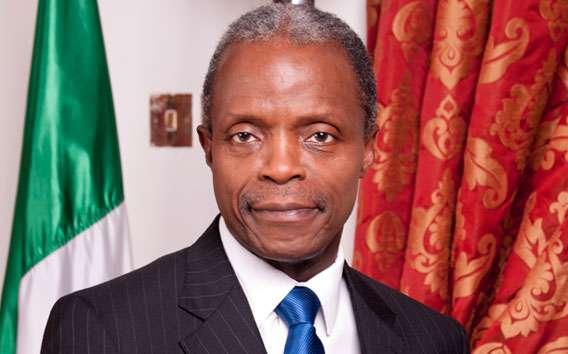


Osinbajo slams EFCC over low graft convictions

Vice President Yemi Osinbajo on Wednesday lamented the delay in court processes which often get high profile corruption cases stalled.
He said the development had left the various anti-corruption agencies only able to secure seven convictions in such high profile cases since 1999, a figure which he said was too insignificant.
Osinbajo was represented by the Chairman of the Presidential Advisory Committee against Corruption, Prof. Itse Sagay (SAN), at a sensitisation workshop on sections 306 and 396 of the Administration of Criminal Justice Act, 2015 and delay of high profile corruption cases in Nigeria.
Sections 306 of the ACJ Act prohibit courts from granting order of stay of proceedings with respect to criminal trial while section 392 of the Act also stipulates that preliminary objection to a charge would only be considered with the substantive case and a ruling delivered on it at the time of the delivery of the judgment in the case.
Before the ACJ Act came into force in May 2015, many high profile corruption cases had been stalled at various levels of appellate courts due to various interlocutory appeals filed by defence lawyers.
Osinbajo, who lamented the delay tactics often deployed by defence lawyers to frustrate the course of justice in high profile corruption cases, said on Wednesday that though he was not an advocate for “conviction at all costs in high profile cases,” the law must be followed in all corruption cases either low or high profile.
He said though former President Olusegun Obasanjo identified corruption as “the number one monster devouring Nigeria since 2002,” only about eight high profile cases had been concluded with the prosecution successfully securing convictions.
He said out of the eight convictions one of them was reversed by the Supreme Court on technical grounds.
The Vice President did not name the cases in which the eight convictions were secured but it will be recalled that the Supreme Court on December 13, 2013, discharged and acquitted a leader of the Peoples Democratic Party in Lagos State, Chief Bode George, of criminal charges on which he had earlier been convicted by the Lagos High Court and the judgment affirmed by the Court of Appeal.
“It is a sad truth that of all the high profile cases filed since 2002 when the EFCC (Economic and Financial Crimes Commission) was established and corruption was first actively identified then by the President, Olusegun Obasanjo, as the number one monster devouring Nigeria, only about eight high profile cases have been concluded with the prosecution successfully gaining convictions from the appropriate courts,” Osinbajo said.
Source: Punch
Share this post
Naijanetwork Forum Statistics
Threads: 14763,
Posts: 17811,
Members: 6704


